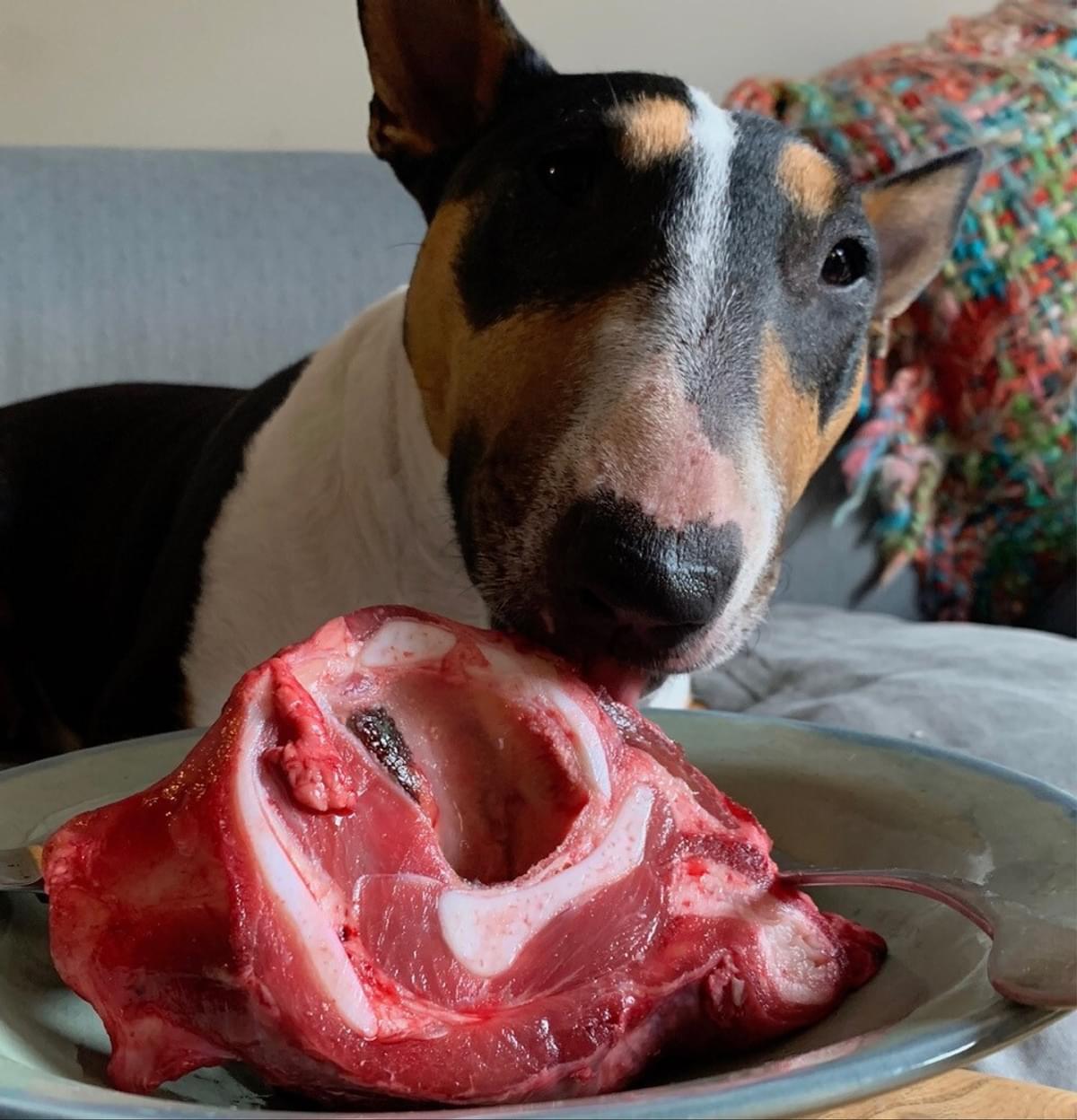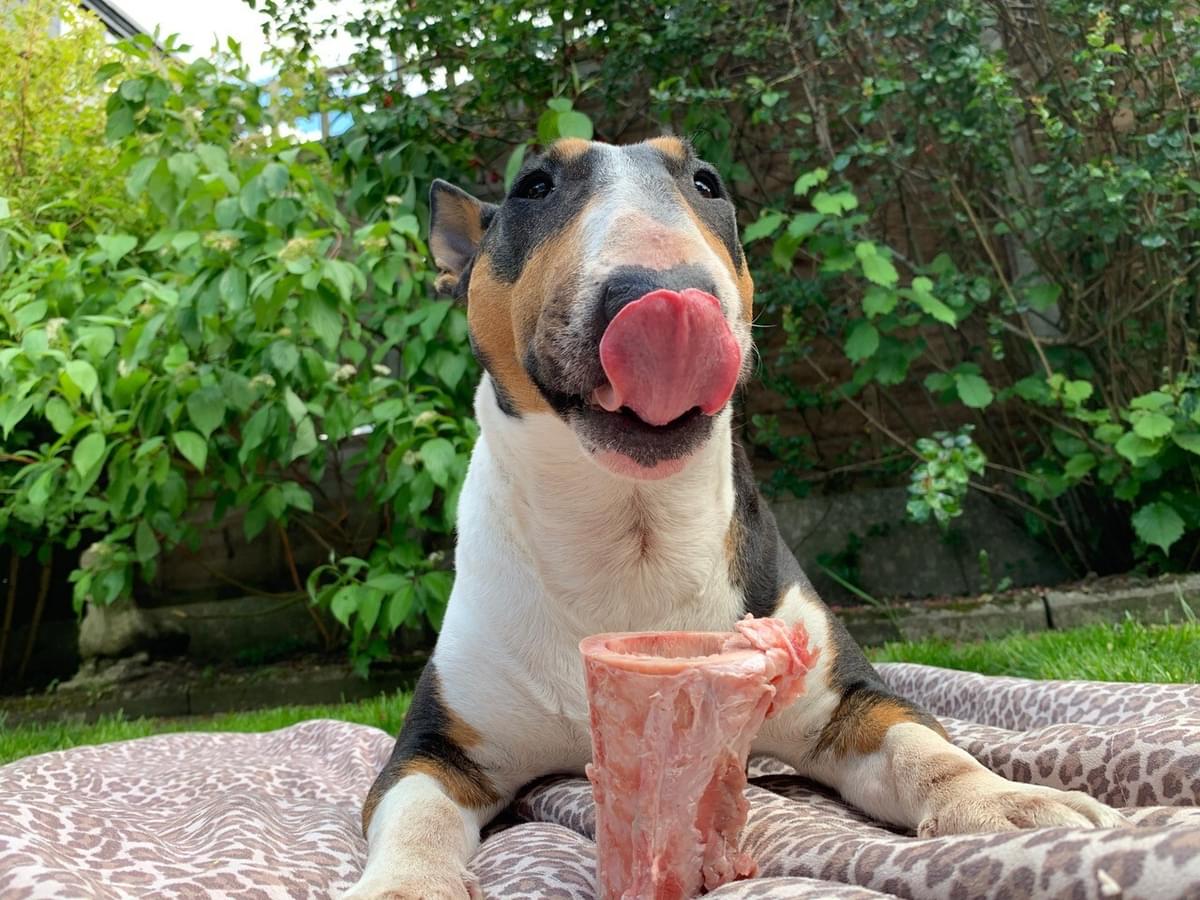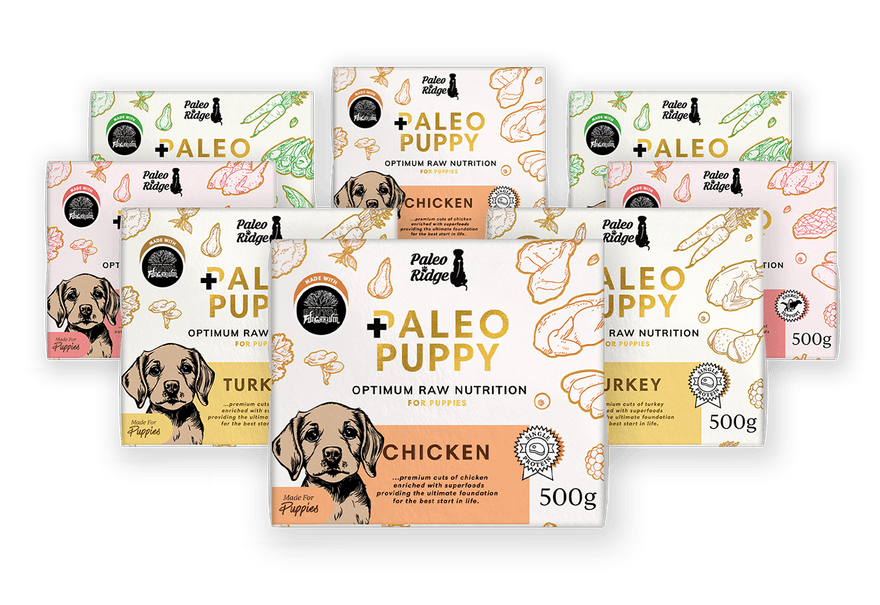The proteins of 10 amino acids, including Tryptophan, Taurine, Lysine, Arginine, are essential for a dog’s health and are only available in meat! These are either missing from plant sourced protein, or are not bio-available.
So, meat is responsible for building and repairing the muscles and tissues, and maintaining cellular expression.
Meat also provides dogs with the structure for the skin, hair, nails, bones, joints, tendons, ligaments, cartilage, and muscle fibres.
As the gut is responsible for over 70% of the immune system, it’s the number one defence mechanism against toxins and disease. It fuels the body to survive and fight the ageing process.
It’s well documented at a human level that a compromised gut causes ill health like allergies, autoimmune conditions, even cancer. And science has recently shown the same is true in dogs.
Opting for locally sourced, even organic meat is an answer to balance concerns of antibiotics that can travel down the meat food chain.
I opt for a responsible supplier like Paleo Ridge to offer locally sourced or organic meat that’s pre-prepared into balanced complete frozen meals.
If you are what you eat, ethically I feel it’s a tad ironic to feed dogs as vegans or vegetarians.
After all, you would never dream of feeding your rabbit a steak.






